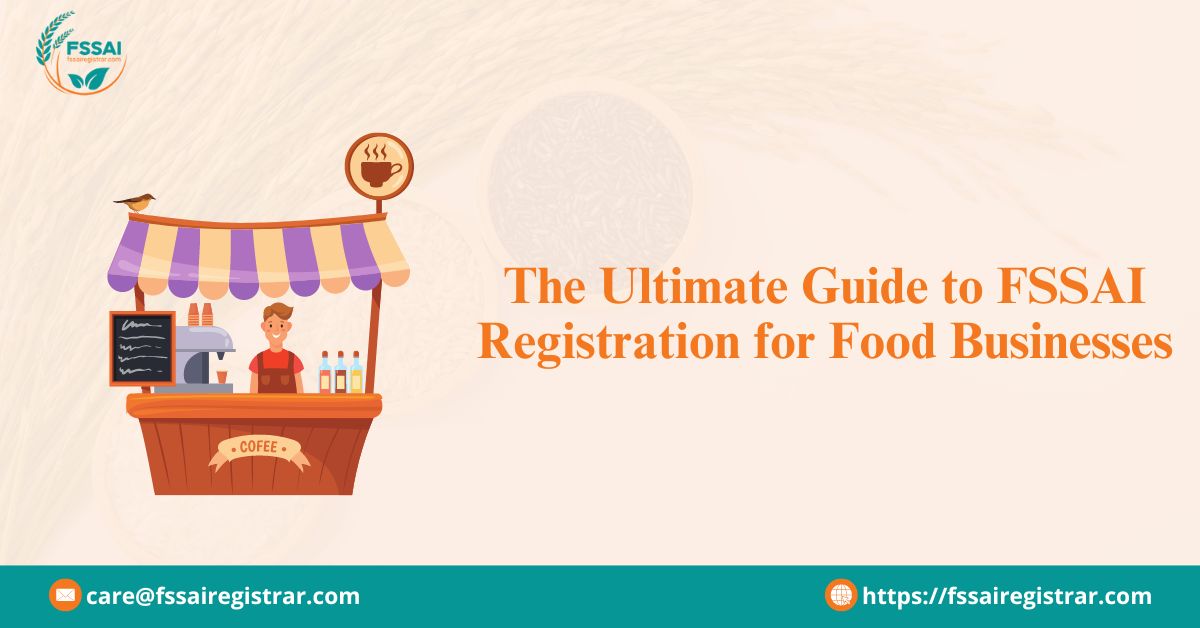Starting and running a food business in India involves more than just having great recipes and a passion for food. One of the crucial aspects of ensuring your food business operates legally and maintains high standards of safety and hygiene is obtaining FSSAI registration. This guide will take you through the essentials of FSSAI registration, its importance, the types of licenses, the step-by-step registration process, and tips for maintaining compliance.
What is FSSAI?
FSSAI is a group under the Indian government’s Health & Family Welfare Ministry. It oversees food safety standards in India. The FSSAI is in charge of regulating and overseeing food safety to safeguard and advance public health. Every food business operator (FBO) in India must register with the FSSAI to ensure that the food they sell is safe for consumption.
Importance of FSSAI Registration
Legal Requirement: FSSAI registration is mandatory for all food businesses in India. Operating without it can lead to hefty fines and legal action.
Consumer Trust: An FSSAI registration number on your products builds trust among consumers, indicating that the food has been tested and is safe.
Business Expansion: Having FSSAI registration can facilitate business expansion and easier market access, both domestically and internationally.
Quality Control: It ensures that food products meet quality standards, reducing the risk of adulteration and substandard products.
Benefits in Funding: Registered food businesses are more likely to receive funding and investments from banks and other financial institutions.
Types of FSSAI Licenses
There are three main types of FSSAI licenses depending on the scale and nature of the food business:
- Basic Registration: For small-scale food businesses with an annual turnover of up to INR 12 lakhs.
- State License: For companies in the medium-sized category with yearly sales between INR 12 lakhs and INR 20 crores.
- Central License: For large-scale businesses with an annual turnover exceeding INR 20 crores, or if the business involves importing/exporting food products.
Step-by-Step Process for FSSAI Registration
Step 1: Visit the Website
Visit the official website of fssai registration.
Step 2: Fill Out the Application Form
Fill out the application form with the correct information. With Basic Details:
- Name
- Mobile number or email ID
- Name of business
- Select the food category
- Nature of the business
- A complete address including State, district, and pic code.
- Upload PAN Card
Step 3: Review and Submit Your Application
Before submitting, carefully review all the information you have entered. Ensure that all details are correct and required documents are uploaded. Once you are satisfied with the information, click on the “Submit” button to finalize your application.
Step 4: Payment of Fees
After filling out the application form and uploading the required documents, you will need to pay the registration fee. The fee varies depending on the type of license that you are applying for. Online payments can be made using several ways, including UPI, net banking, and credit/debit cards.
Step 5: Verification
After making a successful payment, Our executive will call you for the OTP which was given on your registered mobile number/ email ID which will help them for further process.
Step 6: Inspection and Approval
Depending on the type of license, your application may require an inspection by FSSAI officials. They may visit your premises to verify the information provided and ensure compliance with food safety standards. Your application will be approved if all is in order.
Step 7: Receive Your FSSAI License
Once your application is approved, you will receive your FSSAI license. This can usually be downloaded from the website.
Tips for Maintaining FSSAI Compliance
Regular Audits: Conduct regular internal audits to ensure ongoing compliance with FSSAI standards.
Training: Provide continuous training to your staff on food safety and hygiene practices.
Record Keeping: Maintain detailed records of food purchases, sales, and safety measures to demonstrate compliance during inspections.
Renewal: Renew your FSSAI license before it expires. The renewal process should start at least 30 days before the expiration date.
Labeling: Ensure that all food products are labeled according to FSSAI guidelines, including the FSSAI logo and license number.
Updates: Stay updated with any changes in FSSAI regulations and implement them promptly.
Note :To re-new your FSSAI license , click here – FSSAI LICENSE RENEWAL
Conclusion
Obtaining FSSAI registration is a critical step for any food business in India. It not only ensures legal compliance but also builds consumer trust and opens up opportunities for business growth. By following the outlined steps and maintaining regular compliance, you can ensure that your food business operates smoothly and continues to provide safe, high-quality food products to your customers. Whether you’re a small-scale vendor or a large-scale manufacturer, FSSAI registration is an investment in the credibility and success of your food business.



